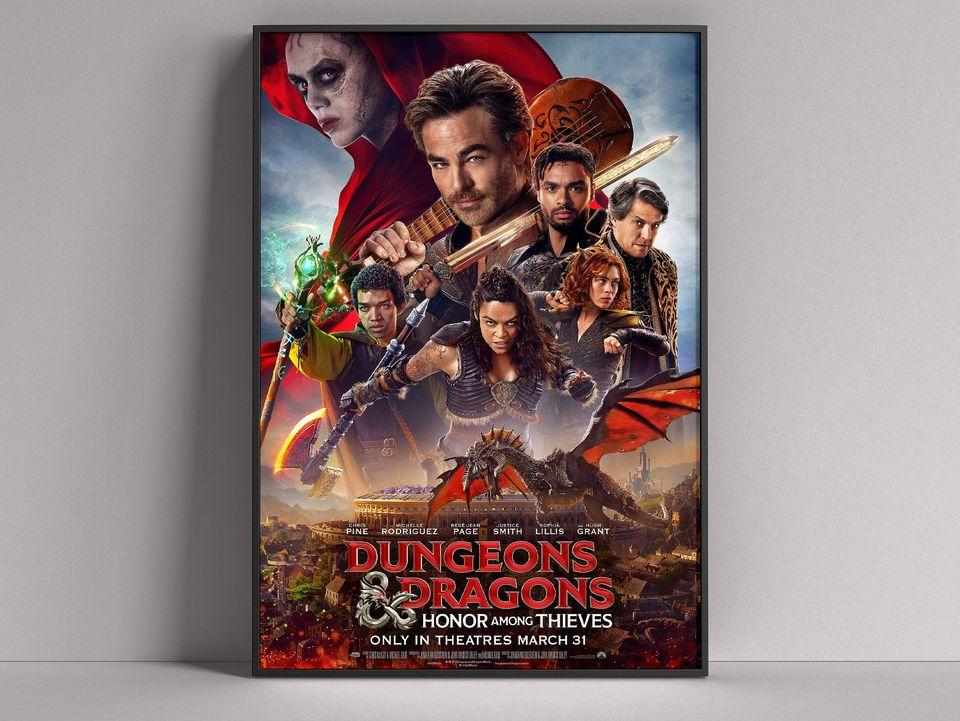Dungeons & Dragons Is a Household Name Again
In the realm of gaming, Dungeons & Dragons (D&D) has long reigned as a classic and influential role-playing game. However, in recent years, this beloved game has seen a resurgence in popularity, becoming a household name once again. From its origins in the 1970s to its more recent iteration, this iconic game has captured the hearts and imaginations of people from all walks of life.
One of the primary reasons for D&D’s renewed success is its increasing visibility in popular culture. In the past, the game was often associated with niche groups of hardcore fans, but now it has broken free from those confines to attract a wider audience. Television shows, movies, and even podcasts have embraced the world of Dungeons & Dragons, bringing it into the mainstream consciousness. For instance, the Netflix series “Stranger Things” prominently features characters who are avid D&D players, and this exposure has introduced the game to a whole new generation.
Furthermore, Dungeons & Dragons has become more accessible than ever before. In the past, playing the game required a dedicated group of friends, a large set of rulebooks, and a significant investment of time and effort. However, with the advent of online platforms and digital tools, it has become easier for individuals to find groups, learn the rules, and create their own adventures. Websites and apps allow players to connect with others across the globe, facilitating online campaigns and discussions. This accessibility has made D&D more inclusive, bringing in people who may not have had the opportunity to participate in tabletop role-playing games previously.
Another factor contributing to D&D’s resurgence is the sense of community it fosters. In an increasingly digital world, people are seeking social connections, and D&D offers a unique avenue to create meaningful and collaborative experiences. The game encourages players to work together, problem-solve, and build imaginative worlds, fostering camaraderie and creative expression. This cooperative aspect is especially appealing to those who find solace in shared experiences and the opportunity to connect with like-minded individuals.
Additionally, the COVID-19 pandemic has had a significant impact on the popularity of Dungeons & Dragons. With people spending more time at home and seeking new ways to entertain themselves, D&D has provided an escape from the monotony of lockdowns and restrictions. Virtual sessions have become the norm, allowing friends and strangers alike to come together and embark on epic adventures from the comfort of their own homes.
It’s worth noting that the surge in interest in D&D extends beyond the gaming world. Educational institutions have also recognized the value of the game as a learning tool. Many schools, libraries, and community centers now host D&D workshops and programs, using the game to teach critical thinking, problem-solving skills, and even aspects of history and literature. This educational aspect has further solidified the game’s mainstream acceptance.
Dungeons & Dragons is experiencing a renaissance, emerging from the shadows of its past reputation and capturing the imaginations of a new generation. Its increased visibility in popular culture, accessibility through digital platforms, sense of community, and educational benefits have all played a role in fostering its resurgence. Whether you’re a seasoned veteran or new to the world of tabletop role-playing games, now is undoubtedly a great time to delve into the magical realm of Dungeons & Dragons.

